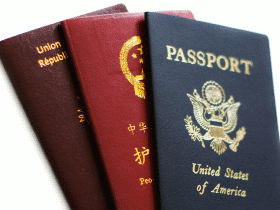As part of exploration operations of multinational companies, wet lease agreements are gaining more importance especially in oil and gas industry and foreign carriers who takes part in such operations are still not clear about either their employees require work permit or not, in cases where they entered into a subcontractor and wet lease agreement with Turkish air carriers for air transport works to be conducted under exploration operations.
The approaches mostly concentrate on classification in status of flying and non flying personnel and the flying field since the operations are offshore. In this article you will find out more specific about what Turkish law requires and how to interpret the law under those two spotlights.
In response to the questions of that; if the wet lease operations be deemed as international since the exploration is offshore, we require to look through the legislation that defines the establishment of operation. Pursuant to the article 2 of the Turkish Labor Law, the unit wherein the employees and material and immaterial elements are organized with a view to ensure the production of goods and services by the employer is called the establishment and all premises used by reason of the nature and execution of the work and organized under the same management, including all facilities annexed to the establishment such as rest rooms, day nurseries, dining rooms, dormitories, bathrooms, rooms for medical examination and nursing, places for physical and vocational training and courtyards as well as the vehicles are deemed to be part of the establishment. Accordingly wherever the flying field is by means of offshore or onshore it is obvious that the establishment of operations is deemed to be local since the base and accommodation facilities are located in Turkey.
The principal legislation on work permits are Law on Work Permits for Foreigners (Law No 4817) and the Regulation on the Implementation of the Law on Work Permits for Foreigners that set forth the terms and conditions and exemptions of obtaining work permit. Pursuant to the article 4 of the Law No 4817 unless otherwise provided in the bilateral or multilateral agreements to which Turkey is a party, the foreigners are obliged to get permission before they start to work dependently or independently in Turkey. Following to aforesaid interpretation that the wet lease operations are deemed to be local even the exploration is offshore, it is obvious that article 4 of the Law No 4817 also requires work permits for foreign personnel during the period they work in Turkey even they will be kept on payroll of foreign companies or work independently.
Pursuant to the article 8 of the Law on Work Permits for Foreigners i) foreigners, who are married with a Turkish citizen and live in Turkey with their spouses with marriage bond, or to foreigners, who have settled in Turkey after their marriage bond has finished after at least three years, and to the children thereof from a Turkish citizen spouse; ii) those who have lost their Turkish Citizenship within the framework of the 19th, 27th and 28th articles of the Turkish Citizenship Law and their subordinates; iii) foreigners that were born in Turkey or have come to Turkey before reaching their majority according to their national laws, if they don’t have a nation, according to the Turkish legislation and that have graduated from vocational school, high school or university in Turkey; iv) foreigners that are accepted as an emigrant, refugee or nomad according to the Residence Law v) citizens of the countries that are a member of the European Union and to the spouses and children thereof who are not citizens of the countries that are a member of the European Union; vi) those who are working at the service of the diplomats, administrative and technical personnel that are commissioned in the foreign governments’ embassies and consulates in Turkey and in the representations of the international establishments, and to the spouses and children of the diplomats and administrative and technical personnel commissioned in the embassies, consulates and representations of the international establishments in Turkey, provided that they are within the framework of the principle of reciprocity and they are restricted with the duration of the commission; vii) foreigners who will temporarily come to Turkey for a period of over one month with the aim of scientific and cultural activities, and for a period of over four months with the aim of sports activities; viii) foreigners at the position of key personnel to be employed in the works of goods and services purchase, having a work made or operating a facility, with contract or tendering procedures by the ministries and public institutions and establishments authorized by law; ix) stateless persons and those who granted refugee status by the Ministry of Interior upon application for international protection are exempt from work permits.
Since there is no clause for exemptions for independent and permanent employees defined by the Law on Work Permits for Foreigners and in reference to the article 22 of the Law stipulating that procedures and bases regarding giving, restricting and canceling every kind of working permission, the foreigners to be exempted from work permits and how the notification obligations are to be fulfilled are arranged according to the Regulation on the Implementation of the Law on Work Permits for Foreigners to be issued according to the Law, the requirement of work permit should be handled under article 55 of the Regulation on the Implementation of the Law on Work Permits. Accordingly; i) foreigners who are exempts due to bilateral or multilateral agreements to which Turkey is a party; ii) foreigners who domiciles outside of Turkey and will come to Turkey for less than one month for the purpose of scientific, cultural and artistic activities, or for less than four months for the purpose of sporting activities; iii) foreigners who will come to Turkey to give training for usage, maintenance and repairs of imported machines and equipments, or to receive the equipments, or to repair the cars that are malfunctioned in Turkey, provided that they will not stay in Turkey for more than three months commencing on the entrance date and provided they submit the relevant documents; iv) foreigners who will come to Turkey for giving training for usage of imported or exported goods provided that they will not stay in Turkey for more than three months commencing from the entrance date, and provided they will submit the relevant documents in that regard; v) foreigners who will work at the circus or at expositions, which are operating outside the scope of licensed tourism enterprises, provided that they will not stay in Turkey for more than six months commencing on the entrance date and provided they will submit the relevant documents in that regard; vi) foreigners who will come to Turkey to give training at universities and public institutions, provided that term of their stay shall be limited to the term of the training and in any case they will not stay in Turkey for more than two years, and provided they will submit the relevant documents in that regard; vii) foreigners who notify to the relevant authorities that they will provide services in the field of socio-cultural, technological and education, provided that they will not stay in Turkey for more than six months; viii) foreigners who will come to Turkey within the scope of programs conducted by the European Union Education and Youth Programs Central Presidency; ix) foreign trainees within the scope of the international trainee programs provided that the Ministry, Ministry of Internal Affairs, Ministry of Foreign Affairs and Higher Education Council have agreed on term and scope of this program; x) foreign representatives of tour operators, provided that their term of duty shall not be longer than eight months; xi) foreign football players whose applications are accepted by the Turkish Football Federation and General Directorate of Youth and Sports, other athletes and trainers who will stay in Turkey during the term of their agreement; xii) foreign seamen who work at ships that are sailing outside the cabotage line and registered to Turkish International Ship Registry; xiii) foreign experts who work at projects conducted within the scope of the Turkey European Union Monetary Cooperation Program are exempted from work permit during their working period reserving the conditions of special laws and providing the foreigner and the employer fulfill the other obligations arising out of other laws. Exemption periods are not extended under Turkish law.
As obviously seen the Law and the Regulation limits the exemptions and no referral to flying and non-flying employee under wet lease agreement exists. Therefore pursuant to the article 22 (2) of the Regulation on Commercial Air Carriers the operator is allowed to employ foreign flight crew and technicians temporarily providing an approval from Ministry of Labor and Social Security and in compliance to the Law and the Regulation. However the majority of the personnel serving as pilot, technician, cabin crew and dispatchers for the operators conducting their operation with twenty or more seats aircrafts should be Turkish within one year period of the issuance of the Aircraft Operating License and keep those conditions during their operations. Pursuant to the article 22 (4) of the Regulation on Commercial Air Carriers in cases where it is not covered by the Law No 4817, the permits for foreign personnel assigned only for overseas operations on Turkish registered aircrafts are evaluated by Directorate General of Civil Aviation separately. This means that the requirements under the Law No 4817 and the Regulation on the Implementation of the Law on Work Permits for Foreigners should also be fulfilled for flying personnel under aviation legislation as well in cases unless exempted by special laws.
The Special Law Changing the Conditions
Turkish Petroleum Law (Law No 6491 ) which may count as a special law by means of the Law No 4817 and the Regulation on the Implementation of the Law on Work Permits for Foreigners and in consideration of the exploration operations. Pursuant to the article 15 of the Law No 6491, a petroleum right holder may employ expatriate professionals for petroleum operations in Turkey for a maximum of 6 months with the assent of the Ministry of Energy and Natural Resources and the residence permit for work purposes to be issued by the Ministry of Interior, without prejudice to the provisions of specific laws and provided that foreigners and the employees realize the obligations stemming from other laws and by being exempt from the provisions of the Law. If the duration of employment exceeds six months necessary permits shall be taken as per the Law.
The definition of the “petroleum right” is also defined under article 2 of the Law No 6491 as any of the rights arising from an investigation permit, an exploration license or a production lease and the petroleum right owner shall be deemed as the holder of investigation permit, exploration or production license.
In interpretation of the aforementioned legislation it can easily be said that foreign commercial air carriers whom entered to a wet lease agrement with a local commercial air carrier requires to obtain work permit for its employees however if there is a triple secondment agreement between the petroleum right owner, Turkish air carrier and foreign carrier, this can be overcome in scope of the exemption defined under the Turkish Petroleum Law.


